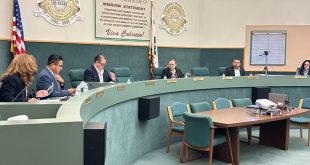 By: Terry Ahtziry Cardenas Banda, attorney and law professor. Special Collaboration: Fernando Manuel Castro Figueroa, attorney and law professor, and Dr. Marina del Pilar Olmeda García, Doctor of Law, researcher, and law professor.
By: Terry Ahtziry Cardenas Banda, attorney and law professor. Special Collaboration: Fernando Manuel Castro Figueroa, attorney and law professor, and Dr. Marina del Pilar Olmeda García, Doctor of Law, researcher, and law professor.
Following up on the article from the last edition, where we discussed the culture of lawfulness in Mexico, in this note we will address the relevant aspects of the culture of lawfulness in the United States of America (USA), in that sense, it is important to highlight that one of the pioneers in promoting the culture of lawfulness in the educational process is Dr. Roy Godson from USA.
As quoted in the last edition, Dr. Roy Godson defines the culture of lawfulness as the set of beliefs, values, norms, and actions that encourage the population to believe in the rule of law, defend it, and do not tolerate illegality. In this sense, when we refer to the culture of lawfulness, it is not only aimed at knowing your rights and seeking to ensure that they are fulfilled, but also involves that in a society governed by a rule of law, its people, citizens, and nationals must have the ability to participate in the drafting of laws that govern society in conjunction with the State, through their legal processes or the legal channels established in the various legal systems, and the most important thing is that they must also trust in the rule of law that governs them, trust in legislative procedures, in the exercise and application of laws, and most important in their governments.
The reality is that in the last 25 years not only in Mexico there has been a considerable increase in serious crimes and corruption, but in the entire world, including in the United States. Sometimes triggered events are needed for true change to take place, such are the current events that the US is experiencing, such as movements against racism, as well as the promotion of citizens participation in the electoral processes, among other momentous and dramatic events that cause revolt and self-analysis. This leads us to declare the need for change and to reinforce our culture of lawfulness, events such as the murders of young African Americans in the United States at the hands of police forces are those that cause a deterioration in the quality of life and above all the need of individuals to participate in public affairs to bring a real change.
 Although the US Constitution reflects the lawfulness of legal institutions, as well as, through its amendments, it provides provisions that guarantee trust in the system and government institutions, the reality is that there is no express provision that properly indicates the strengthening of the culture of lawfulness but rather is interpreted through the provisions provided in the different amendments to the US Constitution. Notwithstanding the foregoing, there are federal laws in the United States that base this precept of the culture of lawfulness and preserve it through provisions that ensure equal access to education and with the high commitment to improving education and the training process of the students.
Although the US Constitution reflects the lawfulness of legal institutions, as well as, through its amendments, it provides provisions that guarantee trust in the system and government institutions, the reality is that there is no express provision that properly indicates the strengthening of the culture of lawfulness but rather is interpreted through the provisions provided in the different amendments to the US Constitution. Notwithstanding the foregoing, there are federal laws in the United States that base this precept of the culture of lawfulness and preserve it through provisions that ensure equal access to education and with the high commitment to improving education and the training process of the students.
To a certain extent, the US has worked so that the people trust the legal and governmental institutions, however, the reality is that due to our current situation, not only the health crisis but the crisis of violations of human, civil, and fundamental rights has caused a decline in the culture of lawfulness in the United States and therefore it is essential to work together to reinforce this culture of lawfulness. As Dr. Roy Godson mentions, a complementary strategy to the current one is needed to have a fundamental change of values where the approach of the legal system is complemented with a society that supports the rule of law, a reality that we are not seeing today. It is important that the different sectors of society such as the media, authorities, police corporations, and educators work together to stimulate a culture of lawfulness.
The United States of America has participated in the development of national and international protection programs; these initiatives have contributed effectively to the administration of justice and the promotion of a culture of lawfulness. Among the actions in which the US has participated in the protection program for Italian pentiti, as well as the UN Treaty on Transnational Crime. Likewise, it has created binational alliances with Mexico to promote legal protection on both sides of the border. In the past, the US State Department has fostered and created alliances with civil society and legal scholars to promote a culture of lawfulness.
As in Mexico, it is necessary to indicate that one of the main actions to combat the phenomenon of insecurity, mistrust in the government, and promote collective well-being is through the strengthening of the rule of law. This can be achieved to the extent that people respect the rule of law and promote respect among members of society as a whole.
In relation to education in the United States, it must be recognized that the perception of young people regarding subjects that directly deal with important issues in American cultures, such as history, civics, ethics, among others, are having a high impact and value in the educational institutions. Educational institutions are seeking to promote in young people a high degree of ethics and promote the respect of rights and equality.
As mentioned in the last edition, it is important to promote and practice a culture of lawfulness in the education sector, with the aim of providing students with elements that favor the acquisition of knowledge about the regulatory framework to modify their attitudes and develop the competences to promote their participation in spaces of their daily life, such as work relationships, those that derive from the signing of a contract; and in their acting as citizens under the protection of the law.
In conclusion, it is necessary to strengthen the culture of lawfulness in the study plans and programs of the entire educational system, as one of the best ways for national identity and defense of the fundamental values necessary for a better coexistence while preserving justice, democracy, and the common good.
As a reference, it was used the Guide to developing a culture of the lawfulness of Dr. Roy Godson and the dissertation of Master Fernando Manuel Castro Figueroa entitled: “The necessary strengthening of the culture of legality in the educational process” of the Center for Social Research of the UABC, where you can find all referred sources.





